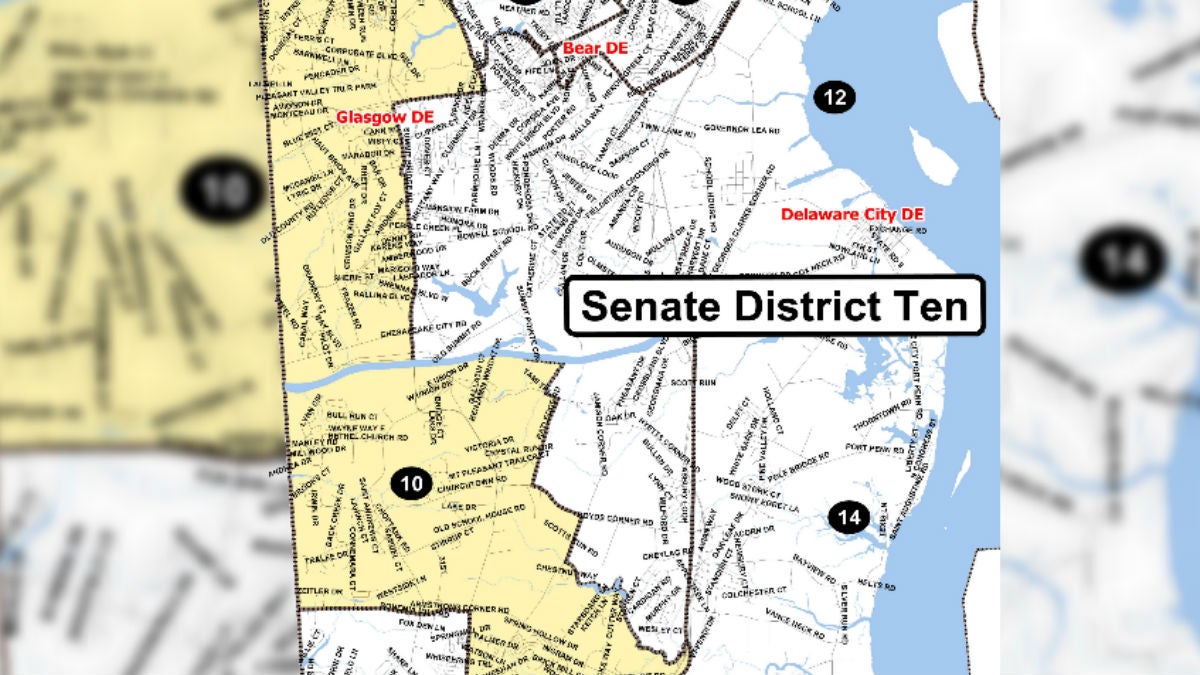Effort to change the way Delaware General Assembly districts are drawn [video]
Listen
A bill making its way through Legislative Hall in Dover would take the district line drawing authority away from lawmakers and give it to a special commission. Naturally, that effort has drawn opposition mostly along party lines.
Gerrymandering. The word is loaded with negative connotations of partisan politics. Gerrymandering is defined as using the process of redrawing district lines to benefit one political party.
Delaware’s Senate and House districts are redrawn every ten years to coincide with the results of the U.S. Census. The process is done by leaders of both chambers, currently all Democrats. But a proposal from state Senator Bryan Townsend would put an end to that and would create an independent commission to redraw the lines.
“It’s not something I worked on because I saw some poorly drawn state legislative district,” Townsend said. He’s proposing the change to make the process more independent of politics. “Elected officials shouldn’t be the one drawing these things.” He wants to help Delaware avoid court challenges to district lines that have been seen in other states.
And while Townsend’s proposal isn’t specifically tied to a problematic district line in Delaware, there have been some accusations about the way districts have been drawn. Following the 2010 census, Republican then-State Rep. Greg Lavelle’s district was merged with a fellow Republican’s district. It worked out for Lavelle, who went on to unseat an incumbent Senator in 2012.
There’s been other issues, too. State Sen. Colin Bonini, R-Dover South, said his district was changed in a very specific manner. “My district came out and like, okay, whatever, it was very different from the district I had, but then they took the maps back, and the new maps came out, I don’t know six hours later…my district had only changed by about half a mile, and they had drawn in my opponent for the 2002 election.” Again, it worked out for Bonini as he won reelection.
But even though Bonini has seen the process be politicized, he’s still against Townsend’s bill to take the decision out of lawmaker’s hands. He says using an “independent” commission will make things worse.
“Anybody who doesn’t believe that this process will be extraordinarily partisan and hyper biased is stunningly naïve,” Bonini said. “Is the current system good? No. absolutely not. And I think the Senate Bill 27 is going to be disastrously bad. And will make it much more hyper partisan.”
Townsend admits politics will likely still play a role, but giving the power to an independent commission would take away the self-interest from it. “We as legislators who are representing these districts should not be the ones who get to choose the lines,” Townsend said.
Townsend’s bill calls for a complicated process to select nine people who will make up the redistricting commission. He said hundreds, maybe thousands, of people would apply and after meeting certain criteria, a commission of nine people would be picked at random from those applicants. Those commissioners would have to be made up of three current or former attorneys or judges. Three would have to be Democrats, three would have to be Republicans and three would have to belong to neither party.
The Senate approved the bill on April 5th with support from just two Republicans, Senators Brian Pettyjohn and newcomer Anthony Delcollo. Now it’s waiting for a committee hearing to be scheduled in the House, which Townsend hopes will lead to a floor vote. If approved, this commission would start work following the 2020 U.S. Census, redrawing lines in time for the 2022 election.
WHYY is your source for fact-based, in-depth journalism and information. As a nonprofit organization, we rely on financial support from readers like you. Please give today.





